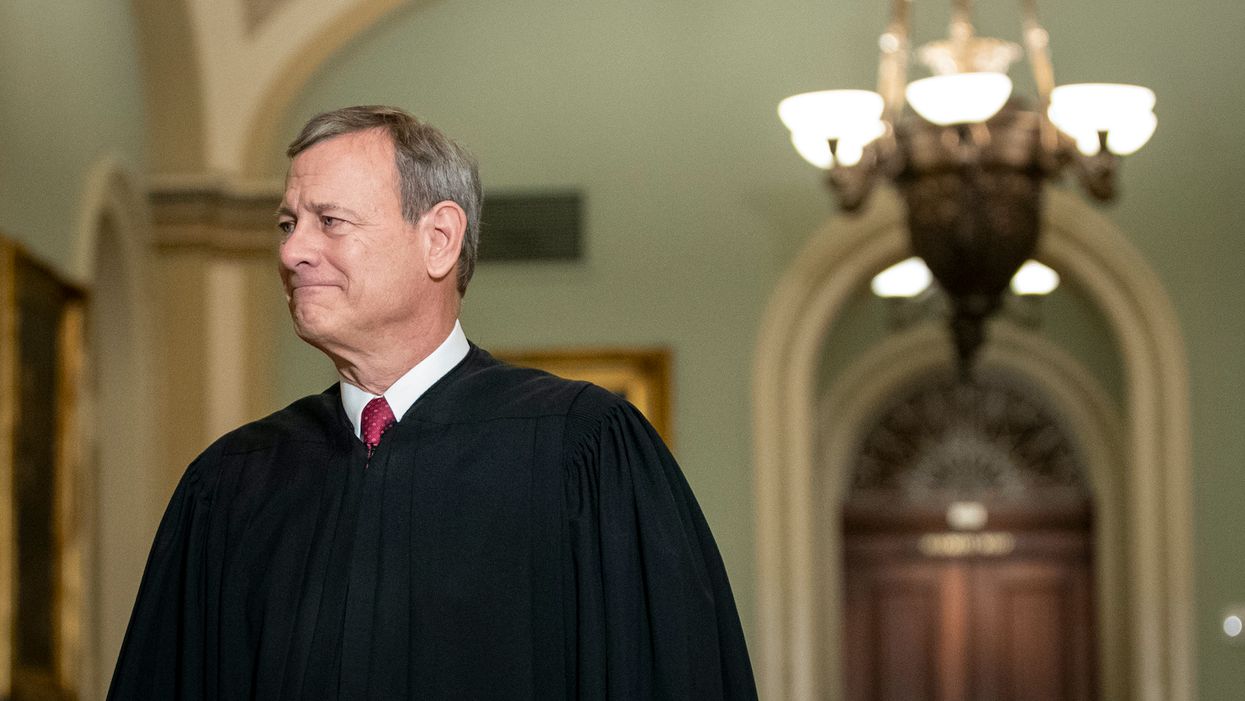
Drew Angerer/Getty Images

What will the court decide?
On Wednesday, the Supreme Court heard oral arguments in its biggest abortion case in years, but the big question appears to be how Chief Justice John Roberts will ultimately decide on the case.
As TheBlaze previewed Tuesday, the case of June v. Russo comes out of Louisiana and deals with a 2014 state law called the "Unsafe Abortion Protection Act," which requires that abortion providers have admitting privileges at a nearby hospital. The case was struck down on the basis of the Supreme Court's ruling in the 2016 Whole Women's Health v. Hellerstedt case, which struck down a supposedly similar admitting privileges requirement in Texas on the grounds that it provided "few, if any, health benefits for women" and constitutes an 'undue burden' on their constitutional right to do so."
The 5th Circuit Court of Appeals, however, found that in Louisiana's case, "the district court erred by overlooking 'remarkabl[e] differen[ces]' between the facts" of the June and Hellerstedt cases.
Now the matter falls to the Supreme Court to decide, and after Wednesday's oral arguments it remains unclear how Roberts — who is viewed as a potential swing vote — might rule on the matter. While Roberts dissented in Hellerstedt, he also joined with the courts four liberal justices to temporarily block the law from taking effect last year.
Roberts' questioning offered few clues about his thinking on the case, but tended to focus on the health benefits of the Louisiana law and its imposed burdens in light of the Hellerstedt ruling.
At one point, the chief justice asked Louisiana Solicitor General Elizabeth Murrill about whether the health benefits of the law would be the same in every state.
"I mean, I understand the idea that the impact might be different in different places, but as far as the benefits of the law, that's going to be the same in each state, isn't it?" Roberts asked.
"No," Murril answered, "I think that a state could certainly show greater benefits, depending on what their regulatory structure is and what the facts are on the ground in that state."
Similarly, at another point during the arguments Roberts pressed attorney Julie Rikelman, who argued against the law, on whether burdens placed by similar abortion regulations have to be evaluated on a state-by-state basis, asking "the results could be different in different states?"
Rikleman responded that the 2016 holding "should clearly apply to Louisiana's identical law" and added that "the burdens of a law may vary, but a law that has no benefits and doesn't serve any valid state interest is much more likely to impose an undue burden."
And while a majority of justices might ultimately decide to apply the precedent set by the 2016 case, abortion proponents fear that they might strike a devastating blow to the abortion access by giving states more authority in the matter.
Acting Planned Parenthood Action Fund head Alexis McGill Johnson expressed such a concern to CNN, saying, even if the court doesn't "have the ability to completely overturn" Roe in with this particular case, "What they would be doing is gutting it so much and creating the right template for state legislatures to then follow suit and then opening up those floodgates."
"Without overruling Roe, the court could gut what is left of the constitutional right to abortion," Gretchen Borchelt, vice president for reproductive rights at the National Women's Law Center, wrote in a story at the Los Angeles Times.
The court is expected to issue its ruling on the case before the current term ends in June.